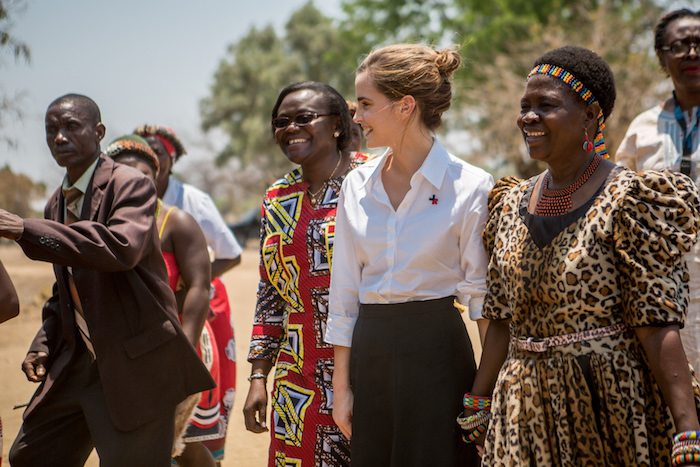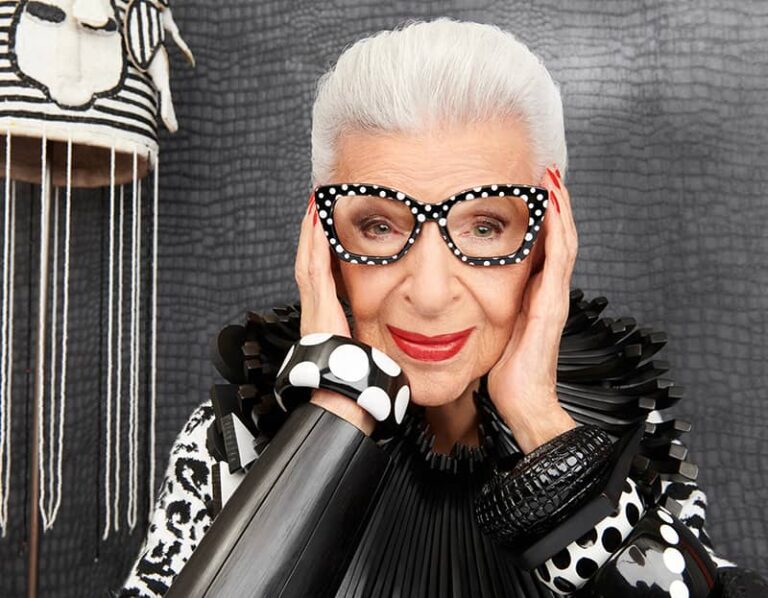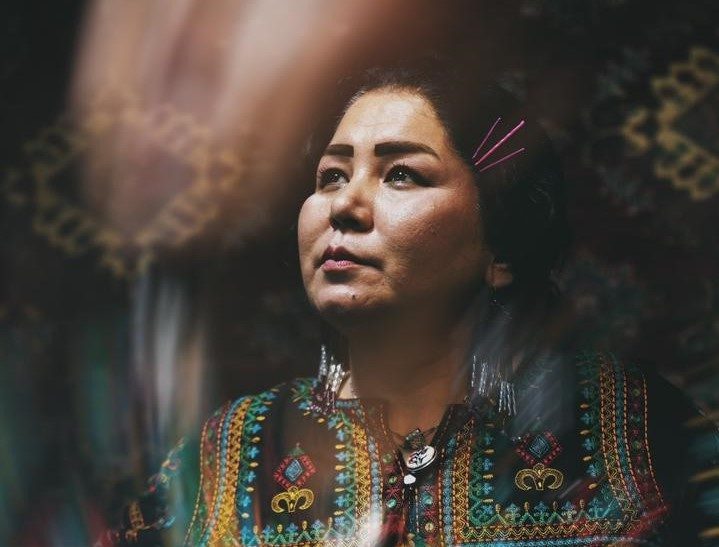On the eve of International Day of the Girl Child, UN Goodwill Ambassador Emma Watson visited Malawi to shine a light on the ongoing need to end child marriage.
Speaking with local chiefs and girls who had their marriages successfully annulled, and were back in their rightful place – school, Watson heard stories from those who were happy to be spared the frightening and dangerous life of a child bride.
In a landmark case, Malawi passed the Marriage, Divorce and Family Relations Act in late 2015, stipulating that the legal age for marriage be lifted to 18.
HeForShe Impact Champion and President of Malawi, Professor Arthur Peter Mutharika, has since set upon the path of fully enacting the law within five years, registering and personally selecting a task force that serves the sole purpose of bringing this barbaric practice to an end.
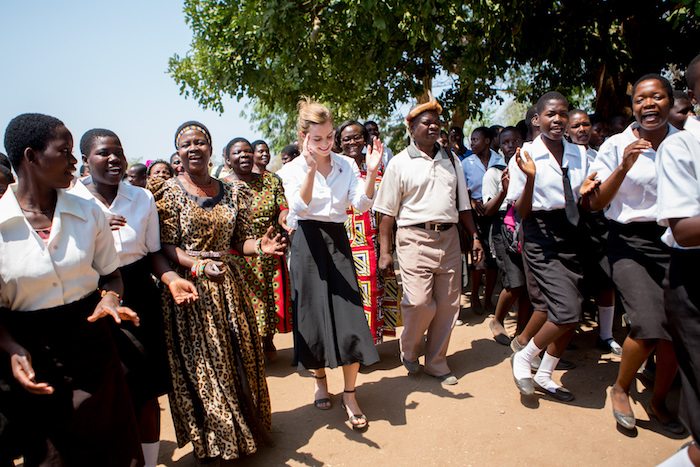
“Spending the day in the beautiful country of Malawi has been a moving and inspiring experience for me. Meeting with young girls, who like many in their country, are struggling with poverty and were pressured into early marriage, depriving them of their education in the process, made me realise just how important it is for women to be able to make their own choices” said Emma Watson.
“I applaud and thank our HeForShe Impact Champion President Mutharika for making this issue a priority in his Government, as well as all the traditional leaders—especially Chief Kachindamoto (so formidable, she has been nicknamed “The Terminator”!). She has implemented the annulment of so many child marriages and restored the futures of these girls. With the help and collaboration of her local chiefs, mothers’ groups and religious leaders, she has managed to annul almost 1500 child marriages, sending the girls back to school.
“President Mutharika has committed to make child marriage a thing of the past in Malawi within the next five years. Because of bold and brave leadership like this things may start to change. It was amazing to be on the ground with UN Women to witness their work!”
Child marriage isn’t a practice that’s contained to Malawi however, globally, one-third of girls in developing countries, excluding China, are married before the age of 18. This act is not only carried out against the wishes of the child, but its institution denies them their right to an education, exposes them to physical and sexual abuse as well as early pregnancy.
Pregnancy in early teens is the cause of 20-30 percent of maternal deaths in Malawi alone.
“Progress is not possible without investing in women and girls. They are our future and constitute half of any society’s promise and resources,” stated UN Women Country Representative Clara Anyangwe. “The Sustainable Development Goals won’t be achieved without the contribution of women and girls. We want a Planet 50-50 by 2030 and we need to step it up for gender equality. This is why UN Women in Malawi has made ending child marriage a top priority for change.”
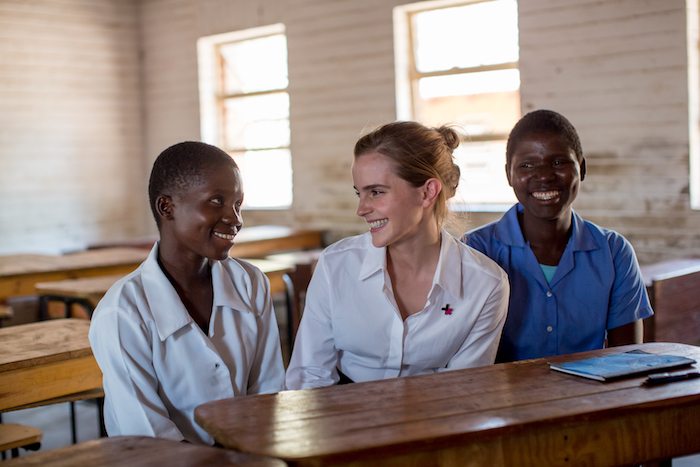
Photo: UN Women/Karin Schermbrucker
Watson met with Senior Chief Kachindamoto, a prominent figurehead in the fight against child marriage at the ground level. Together with other traditional leaders, she has been able to annul nearly 1500 marriages, compelling villiage heads and members of the community to follow suit. The UN acknowledges the importance of bringing community leaders on board, as it is the traditional leaders who regulate customary marriages within the community.
Chief Kachindamoto also shared with Watson, the harrowing tale of two girls, who had already given birth to two children by the age of 14, which compelled her to enact change and fight for an end to the practice.
“It’s so encouraging to see how such a harmful practice can be stopped when communities work together to pass laws, and then turn those laws into reality,” said Watson.


